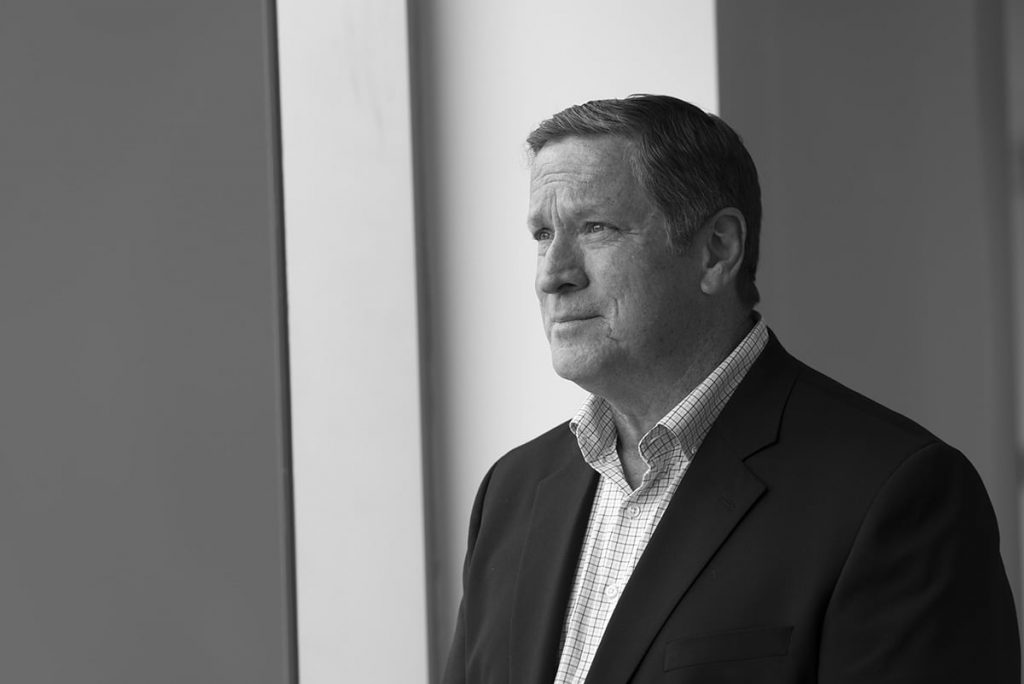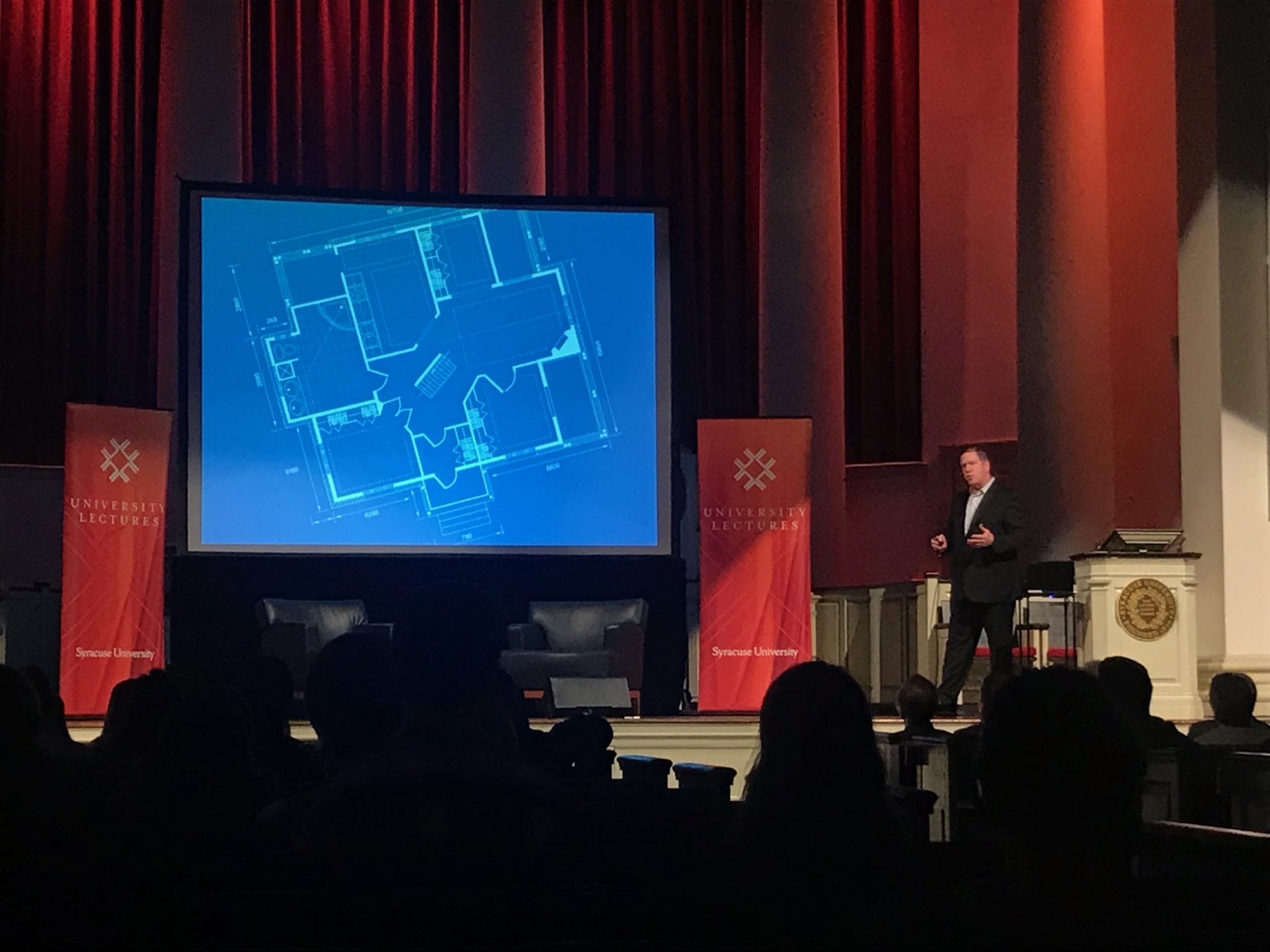Rick Fedrizzi discusses how corporate America can spur environmental change
Fedrizzi discusses how corporate America can spur change

International WELL Building Institute chairman and CEO Rick Fedrizzi gave the eighth and final University Lecture of the academic year Tuesday evening at Hendricks Chapel. He presented briefly on the current state of environmental policy and sustainability, followed by a conversation on capitalism and how it can benefit the environment with School of Architecture Dean Michael Speaks. Fedrizzi has written a book on the intersection of the subject called “Greenthink: How Profit Can Save the Planet.”
Fedrizzi graduated from the Martin J. Whitman School of Management at Syracuse University’s MBA program in 1987. His alma mater sponsored this event along with WAER.
Fedrizzi began his presentation with a story about being unable to find his parked car when abroad in France with his wife. The takeaway, he said, is that “it’s easy to get lost when nothing looks the same.”
He related this to the current state of environmental policy. Scott Pruitt, the new head of the Environmental Protection Agency, whom Fedrizzi “lovingly calls Voldemort,” has begun the roll back of essential legislation protecting the environment. Although these changes may create an unfamiliar landscape, Fedrizzi urges people to stay on track.
“We can take back how we design our communities and how we support our families,” he said. “And regain the part of our world we have lost a little.”
Fedrizzi has a long history of working with nonprofits that work to advance those goals. He was the founding chair and former CEO of the U.S. Green Building Council, which brought about the LEED certification, a globally recognized symbol of sustainability achievement. He also served as the CEO of Green Business Certification Inc. and worked as the environmental marketing officer at Carrier.
At the WELL Building Institute, Fedrizzi works with WELL certification, which is another ranking system for green buildings with more focus on the well-being of people than the sustainability of the building itself. He calls this health and wellness initiative the second wave of sustainability.
“Human health and wellness is the end goal,” he said. “Our job is to have the building be the advocate for how we get that done.”
Fedrizzi asserts in his book that these sustainability and health-centered certifications, along with policy change, can pair with capitalism for environmental good. He said that capitalism is one of the strongest drivers of change, and because green building is a trillion-dollar market, profit can drive that change in the environmental arena.
“We have to understand the importance of business and the extent to which corporate America can be allies,” Dean Speaks said in agreement with Fedrizzi.
The WELL CEO told Speaks that through his writing, he is trying to stimulate conversations between capitalists and environmentalists. He said that, though he is sometimes angered by a world seemingly driven by factors other than facts and data, what helps him sleep at night are the conversations he has with corporate CEOs working for environmental change.
Ryan Smith, a first-year MBA student at Whitman in attendance at the lecture, said that he enjoyed the uplifting messages Fedrizzi shared in contrast with the current political situation in the country.
“It was nice that he emphasized the way the corporate world is stepping up to make up for some of the things that our federal government is currently failing us on,” Smith said.
Fedrizzi then said he believes the national political and social climates concerning the environment will shift soon.
“This is a wake-up call for everyone and I believe the next voting cycle will change things,” he said.






